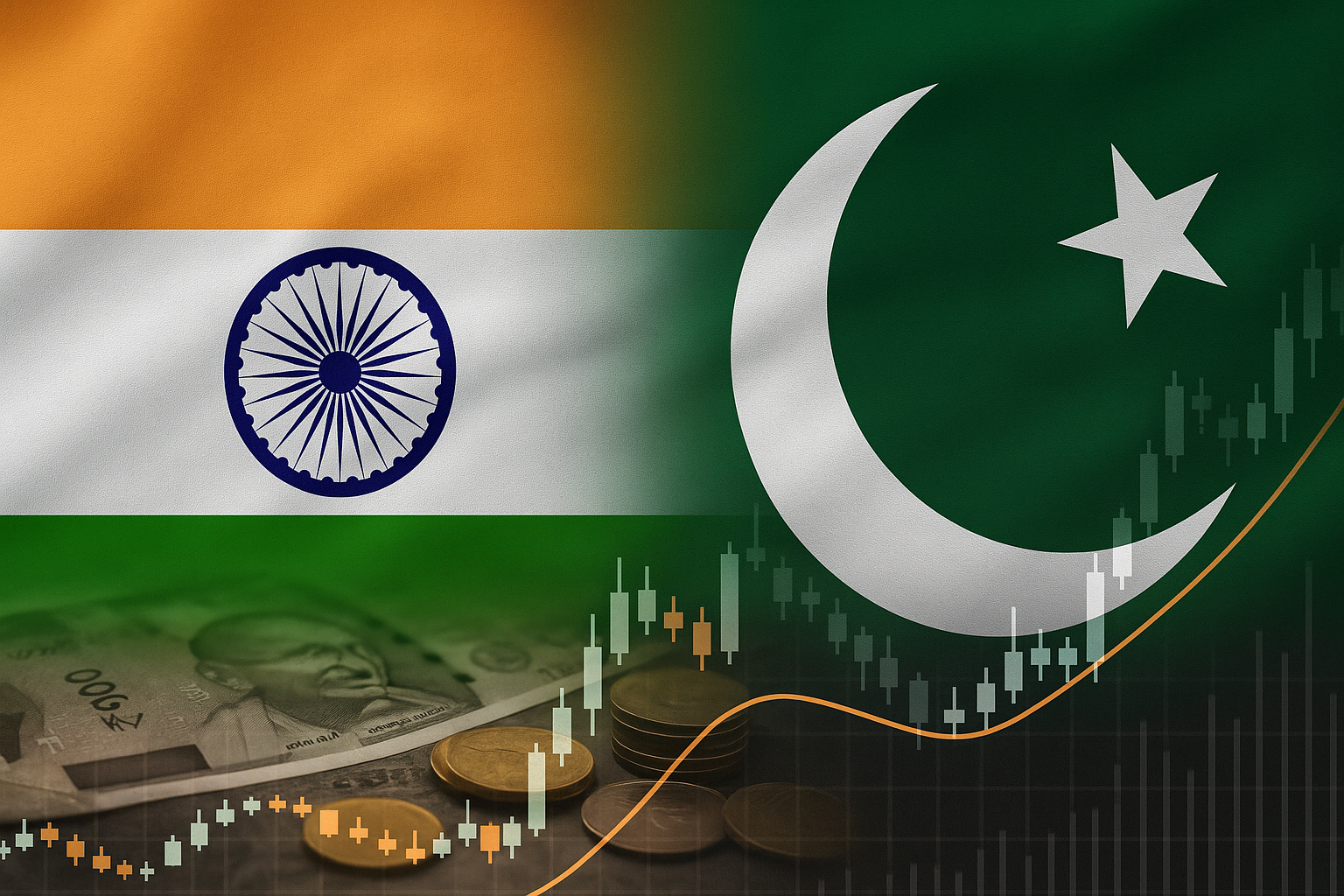
India-Pakistan War: How should we prepare our personal finances?
Last published/edited on 2025-05-10
With recent tensions between India and Pakistan in the news, many Indian households wonder how to brace their finances for a possible India-Pakistan War. Based on historical experiences, conflicts can disrupt markets, trigger inflation, and ultimately strain family budgets. Wars and geopolitical standoffs often lead to volatile prices and currency swings.Though we all hope for peace, prudent financial preparedness during war helps families weather any storm. In this guide for Indian households (salaried employees, small business owners, and retirees), we cover actionable tips on budgeting, building emergency savings, investing in safe assets, and more.
Why Plan Financially for an India-Pakistan War?
An armed conflict with a neighbour can have wide-ranging economic effects. Supply chain disruptions and border closures often cause shortages and steep price hikes in essentials. Analysts warn that a serious conflict would likely weaken the rupee. and cause “inflationary pressures” from higher oil and import costs. In such an environment, households may quickly see grocery, fuel, and utility bills rise. In short, adopting financial preparedness strategies during war, like strengthening savings and diversifying assets, can help households ride out the turbulence.
-
Emergency Fund: This is the first line of defence in cash savings. Experts advise saving a safety net of 6–12 months of living expenses. A robust emergency fund provides a cushion if income is disrupted or prices suddenly jump. Keeping cash or liquid funds (savings account, short-term FDs, or liquid mutual funds) ensures you can cover essentials without borrowing at high cost.
-
Stock Essentials Gradually: Instead of panic-buying, buy non-perishable staples (grains, cooking oil, etc.) in small batches. Stock up on basics gradually to lock in current prices before any shortages hit. This way, you’re prepared if groceries or fuel suddenly get more expensive.
-
Tighten Your Budget: Review your monthly budget and prioritise necessities. Trim discretionary spends like dining out, entertainment subscriptions, or luxury purchases so you can reallocate funds to groceries, fuel, and medical supplies. Postpone major upgrades (new car, high-value appliance) until the situation stabilises. Even modest savings on household expenses can add up quickly under stress. Use budgeting apps or a simple ledger to identify where money goes. Cut back non-essential subscriptions and luxuries
-
Diversify Investments: Ensure some of your savings are in inflation-resistant assets. Analysts recommend holding assets like gold, real estate or inflation-linked bonds to balance risks. For example, gold often shines as a safe haven in conflict: In times of geopolitical uncertainty, gold does well. Even a small allocation to gold (jewellery, coins, ETFs or Digital Gold) can hedge against rupee weakness. Likewise, government bonds or quality debt funds add stability when stocks wobble.
-
Continue SIPs: Avoid halting systematic investments. Staying invested through market dips can average out volatility. Experts advise that during short-term turmoil, regular SIPs may actually build wealth at lower average costs.
-
Reduce High-Interest Debt: Inflation often leads the RBI to raise interest rates, making loans costlier. Prioritise paying down credit-card bills and floating-rate loans. Lowering your EMI burden now shields you from future rate hikes.
-
Insurance Review: Double-check that your health and life insurance are adequate. Many policies exclude war, riots or terrorism from coverage. If you live in or near a border area, consider adding riders or boosting cover amounts. Proper insurance removes one big worry, medical or family expenses – if crises escalate.
-
Stay Calm: Market swings on bad news are normal. Historical data shows that India’s markets tend to recover after short-term conflicts. For example, during the 1999 Kargil War the Sensex fell only about 0.8% before reboundinglivemint.com. Avoid panic selling when headlines flash. Stick to your plan even during the market south run.
Lessons from Past India-Pakistan Conflicts
History offers perspective. Past India-Pakistan stand-offs have generally caused only short-lived market shocks. A Mint analysis found that in five major India-Pakistan conflicts, stock market drops averaged just ~5%. In other cases (Uri 2016, Pulwama 2019), markets dipped a bit but soon bounced back. This resilience suggests that disciplined investors who stay invested can often ride out volatility.
That said, wars have real costs to the economy. After the Kargil conflict, Pakistan’s GDP growth slowed sharply, and in 2019 both countries lost billions in market value within days of escalating tensions. Analysts warn a future all-out war would be disastrous: one report estimated India could spend ~$670 million (₹ 5,700 cr)per day on military operations and suffer a ~20% GDP contraction over a month of fighting. This might lead to hyperinflation and empty our pockets.
No one wants a full-blown India-Pakistan War, but preparing your finances now can make a big difference. The key is preparing, not panicking. Experts emphasise sticking to fundamentals: build an emergency fund, maintain adequate insurance, and keep a diversified portfolio
